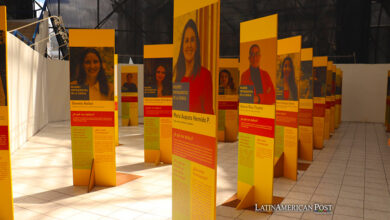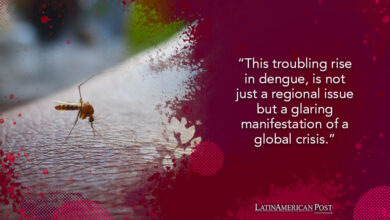5 Young Women Trying To Save the World
The power of young voices impacting their communities by addressing issues related to climate change is very valuable.

The Woman Post | Carolina Rodríguez Monclou
Listen to this article
In this era, many young girls have been inspired by famous young activists such as Greta Thunberg to raise their voices and acknowledge the environmental situation in their countries. These young women advocate for distinct causes, but they all fight to make the place they live in more sustainable and ecologically friendly. Let's take a look at the climate activists that inspire the people who surround them to take care of the planet through their actions.
1. Carmela Ellaga, Philippines
Carmela Ellaga is a 22-year-old Filipina who got recognized by former US First Lady Michelle Obama to contribute to climate change. She is a Fisheries Technologist in Negros Occidental. Carmela graduated from the Carlos Hilado Memorial State College. After finishing her studies, she focused on marine conservation. Ellaga also led the ProCoast project under the Philippine Reef & Rainforest Conservation Foundation, which aims to protect marine resources in flood-prone areas of Sipalay city and the town of Hinoba-an.
2. Ellyanne Wanjiku, Kenya
Wanjiku has made it her life's mission to plant as many trees as possible. She also wants to spread the message about the importance of combating climate change. Currently, Ellyanne is Kenya's youngest climate change ambassador. The 10-year-old warrior plant trees with her classmates on the school farm. Every tree planted makes a difference. Bit by bit, and in their little way, the students are helping to improve Kenya's forest cover and fighting climate change.
3. Xiye Bastida, US
Xiye grew up in the Mexican town of San Pedro Tultepec, embracing the Otomi Toltec indigenous belief that you take care of the Earth because the Earth takes care of you. Now living in New York, Xiye has the unique perspective of being a city dweller with indigenous roots. Through her climate activism, she highlights the significance of youth movements at this point, where the future is at stake more than ever before. Xiye asks for a shift in the narrative surrounding climate change to inspire a cultural change that will, in turn, influence the systems that govern the planet.
Also read: NO MORE US VS THEM – DISMANTLING THE WALL
4. Vanya Sayimane, India
Lush forests razed to bleak plantations. Gleaming rivers polluted by construction. India’s Western Ghats were once full of life, but all of that is under threat. Read Vanya’s appeal to save her community and help her home “thrive again.” https://t.co/QDI31v9y9j
— Malala Fund (@MalalaFund) April 22, 2021
Vanya is a 15-years-old climate activist that writes blogs about global warming. She was born in the dense forests of The Western Ghats, one of India's ecologically most sensitive areas. Although this place is a UNESCO world heritage center, many environmental issues affect the region. Vanya has joined local youth to educate herself regarding all these environmental issues and is determined to fight for the future of her community. She dreams that The Western Ghats' forests thrive again, and she and her people's lungs can breathe pure air again.
5. Lauren Ritchie, The Bahamas
Lauren Ritchie is a Bahamas native, a Columbia University student, a climate activist, and the founder of The Eco Gal blog. Her journey has been all about sustainability and the reception of climate change in the Bahamas. In her words, she always highlights why recognizing intersectionality within climate activism is so important. Intersectionality refers to how race, gender, class, and other individual characteristics intersect with one another and overlap. This word is also used to refer to multiple forms of inequality, which create obstacles within conventional ways of thinking about social issues, including environmentalism. Lauren realized that there are not many voices from black, indigenous, and other minorities representing the fight against climate change. For this reason, she is encouraging these communities to join the conversation.
These five young climate activists understand that the change starts by taking the lead and the first step. Although some of their actions may seem small, all efforts related to climate change are significant in reality. The future generation is creating more consciousness regarding the issues that affect living beings. With their leadership, they can encourage their communities to take action and work together in a friendly ecological way.




